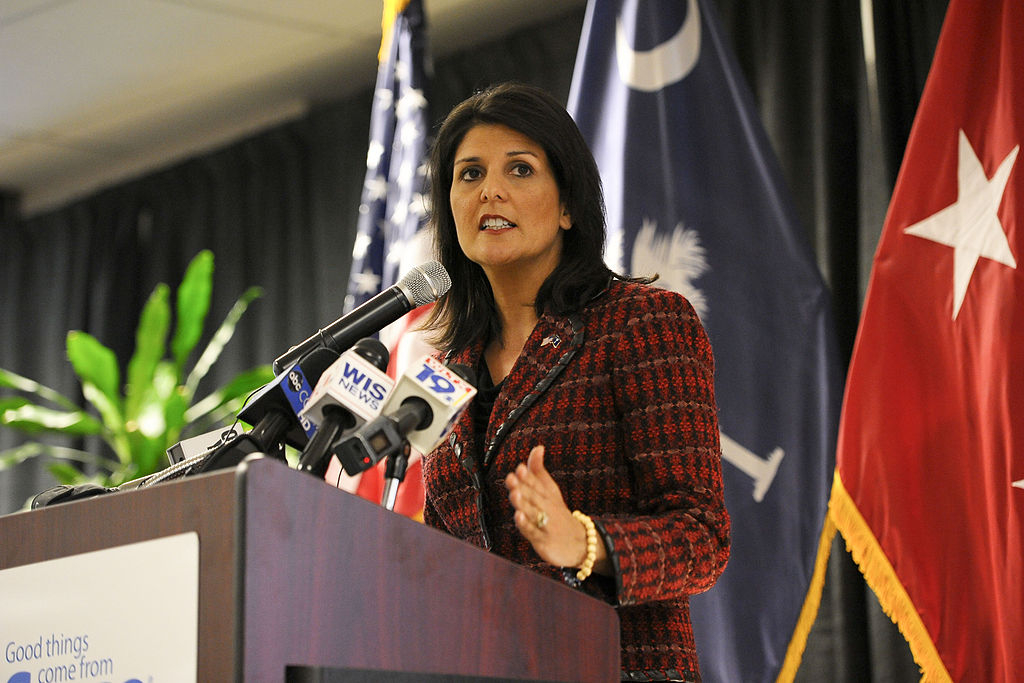|
In this mailing:
- Judith Bergman: Hijab Barbie:
Useful Idiots of Cultural Jihad
- Ahmed Charai: Africa: The Way
Forward
- Debalina Ghoshal: Russia's
Dangerous Nuclear "Diplomacy"
by Judith Bergman • November 27,
2017 at 5:00 am
- Far from being a
symbol of empowerment, the new Hijab Barbie is an example of a
cultural and civilizational jihad -- and the submission of a
Western company, Mattel, to that jihad. Cultural jihad is the
attempt to change and subvert Western culture from within, or
more simply put: to Islamize it.
- Rather than
reminding girls of a world of opportunities, the hijab reminds
them of all the things they cannot do in many Muslim
countries. These include decisions about their own lives and
bodies, such as not having their genitals mutilated, and
generally not leading the free lives that women in the West --
including the ones working at Mattel -- probably take for
granted.
(Image
source: Facebook screenshot via BBC/YouTube)
A new Barbie doll has been launched as part of
Mattel's "sheroes" line. It is a doll in full hijab
modeled after American-Muslim Olympic fencer, Ibtihaj Muhammad, the
first American athlete to compete in the Olympics wearing a
headscarf, which -- apparently -- Mattel felt was something for
little girls worldwide to emulate. That and the possibility of
selling millions of toys in the burgeoning Muslim market, of
course.
According to a statement from Mattel:
"Barbie is celebrating Ibtihaj not only for her
accolades as an Olympian, but for embracing what makes her stand
out," said Sejal Shah Miller, Vice President of Global
Marketing for Barbie. "Ibtihaj is an inspiration to countless
girls who never saw themselves represented, and by honoring her
story, we hope this doll reminds them that they can be and do
anything."
by Ahmed Charai • November 27,
2017 at 4:30 am
- The United Nations
keeps spending huge amounts of money in many countries for
missions supposedly established for aimed for peacekeeping in
many countries. However, the cost-effectiveness of these
missions remains to be seen. They have so utterly failed to
solve any crisis.
- The US is called
upon to provide equipment, expertise and training for the
local governments. Terrorist activities over almost all of the
continent threaten US citizens, personnel and investments.
- The fact remains
that those who decide to join terrorist groups often do it out
of despair and lack of alternatives, rather than based on
ideological grounds. US investments present the real prospect
for creating job opportunities for young people to prevent
them from succumbing to the temptations of the merchants of
death. The way forward is to piece together a new platform of
African consumers of US products and services, and by the same
token fend off terrorist groups.

Nikki
Haley (pictured above from 2014). (Image source:
defenseimagery.mil)
What has just happened in Zimbabwe is merely
symptomatic of the state of affairs in the African continent.
Robert Mugabe, the "last of the Mohicans" of the wars of
independence in Africa, has been shown the door at the age of 93.
It was the higher echelons of the military and his own political
party that decided they had enough of the "Old Lion",
rather than a popular upheaval. The exit scenario was executed
masterfully, without any bloodshed or violence of any kind.
To be sure, the people of Zimbabwe, a country that
boasts an 83.6% literacy rate among its adult population, have to
be commended for showing a strong sense of civility, to say the
least, in the face of this major turning point. They are indeed an
exception in Africa.
by Debalina Ghoshal • November
27, 2017 at 4:00 am
- Russia's state owned
nuclear energy organization, Rosatom, of Uranium One
celebrity, has been trying to develop nuclear cooperation with
most of the Middle East countries.
- Russia would
undertake building and operating the nuclear power plants –
then start influencing the foreign policy decisions of the
country supposedly to "protect" the nuclear power
plants from terrorists, and from there to project military
influence in the region as it has done in Syria. Russia has
already strengthened its defense and military cooperation with
Iran and Turkey.
- Middle Eastern
countries seem as eager to partner with a great power such as
Russia as Russia does to partner with them. That way,
"everyone" in the region could enjoy greater
influence, militarily and otherwise.
The
Russian-built Bushehr nuclear power plant, in Iran. (Photo by IIPA
via Getty Images)
Russia has been trying to relieve itself of the
economic slowdown it has faced ever since the West imposed
sanctions on it for invading the Ukraine. To that end, Russia's
state owned nuclear energy organization, Rosatom, of Uranium One
stardom, has been attempting to develop nuclear cooperation with
most of the countries in the Middle East. Russia apparently
considers the Middle East and North Africa two of the most
lucrative markets; countries in the Middle East have already
expressed interest in building 90 nuclear power plants at
twenty-six sites across the region by 2030.
The Russian government has strongly supported the success
of a company globally. Rosatom, for instance, already opened a
regional office in Dubai, even though the United Arab Emirates does
not have nuclear cooperation with Russia and cooperates with South
Korea instead.
|































No comments:
Post a Comment